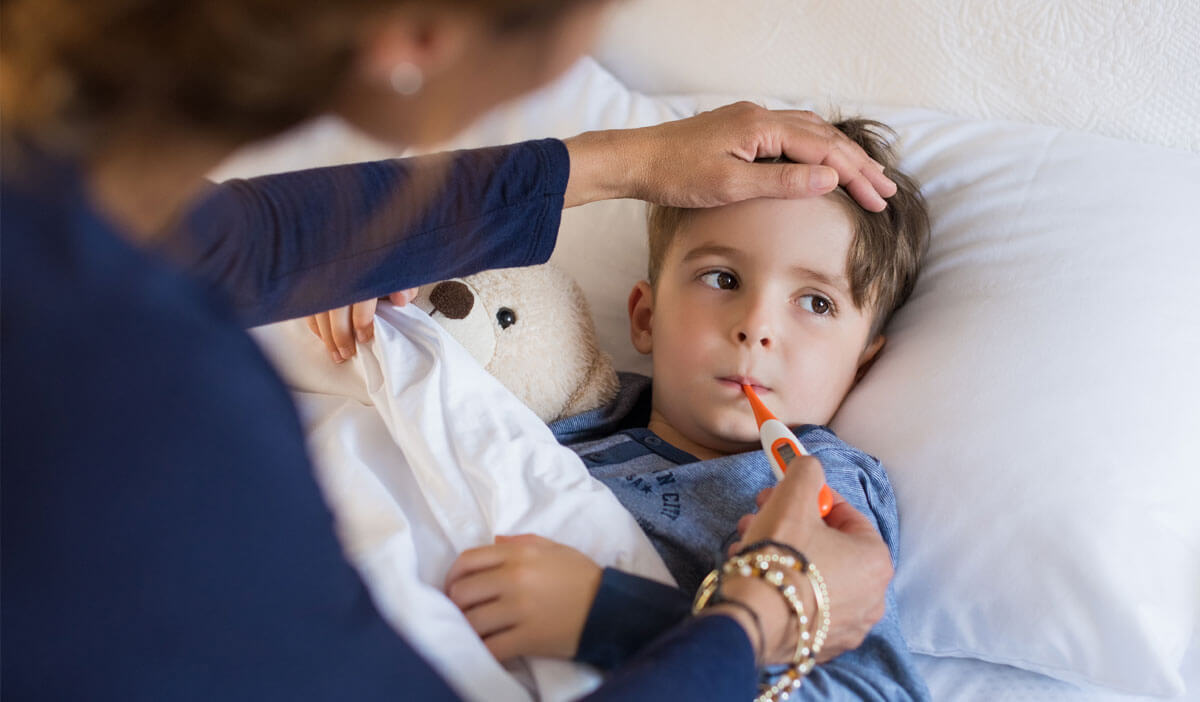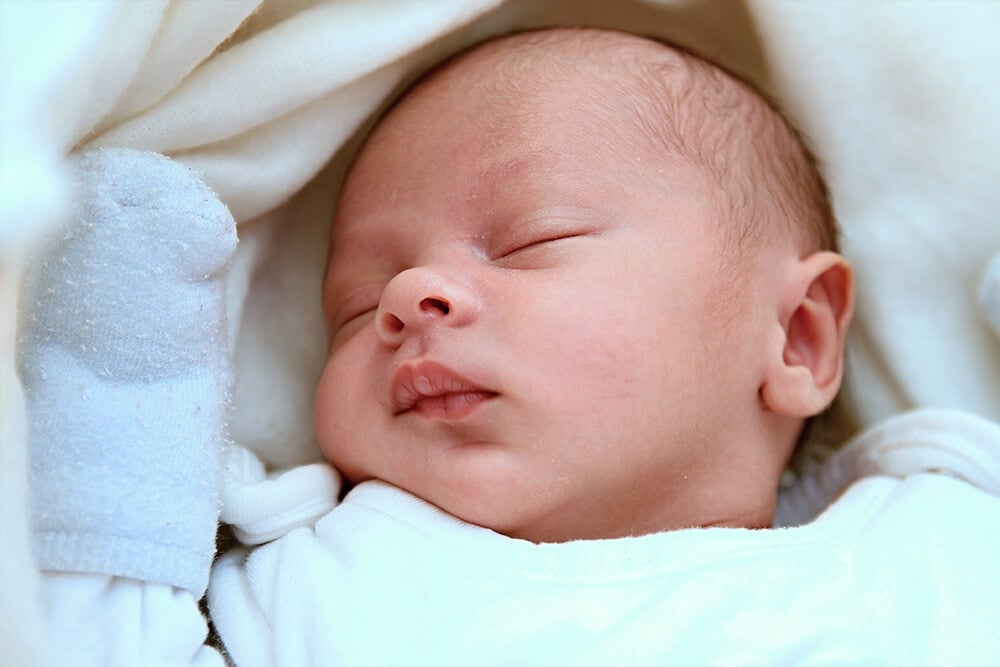When our children are healthy and feeling well, their bodies can regulate their temperature and keep it in a safe range. When something is wrong or they’re sick, their body’s temperature can rise. If your child’s fever seems too high, it is understandable if you start worrying.
In this blog article, we’ll discuss the signs and symptoms of fever, how to reduce your child’s fever at home, and when a fever might require a visit to the doctor.

How to know when your child has a fever
The first step in determining whether or not your child has a fever is by taking their temperature at home. For that, you’ll need a thermometer.
If you don’t have a thermometer already, there’s no need to spend a lot of money on a fancy one to measure your child’s temperature.
You can usually find a simple, reliable version for less than $10 at your local pharmacy. Depending on the type you get, you can measure your child’s temperature in their mouth, armpit, ear, forehead, or rectum. Follow the instructions included with your thermometer for the most accurate results.
If your child’s temperature reads higher than 100.4°F (38°C), they’re considered to have a fever. It’s important to note that your child’s fever itself isn’t an illness—it’s a symptom. It’s a sign that their body is fighting some disease or infection.
Fever stimulates the body’s defenses, sending white blood cells and other “fighter” cells to destroy the cause of the infection.
When your child has a fever, they may become uncomfortable and show the following symptoms:
- They feel warm or hot
- They become less active or talkative than usual
- Babies may seem fussier
- They are less hungry or more thirsty
Tips for reducing your child’s fever
If your child’s fever is making them uncomfortable, there are things you can do at home to bring it down. While treating your child’s fever won’t help them get rid of their infection or illness any faster, it can relieve some of their discomfort.
Here are some things you can do to bring your child’s fever down safely:
- Give them a fever-reducing medicine like acetaminophen (Tylenol) or ibuprofen (Motrin). You can find both infant and child versions at most pharmacies. (Note: Never give your child aspirin, as it has been linked to a serious disease called Reye syndrome.)
- Dress your child in loose, light clothing.
- Make sure they drink plenty of fluids like water or juice. (You can even give them popsicles to help hydrate and cool them down.)
- Give them a lukewarm bath (not too hot or too cold).
When to see a doctor for your child’s fever
Fever can be more severe in newborn babies. According to the American Academy of Pediatrics, if your child is younger than three months old and has a fever (temperature is above 100.4°F), you should call your child’s doctor right away.
Other times to call the doctor about your child’s fever:
- They have had repeated fevers above 104°F (40°C).
- They’re younger than two years old, and their fever continues for more than 24 hours.
- Your child’s fever persists for more than three days (children of any age).
- Your baby is fussy and can’t be soothed (remember, if they’re younger than three months old, see the doctor right away if they have a fever).
When your child does have a fever, it’s essential to observe them. Some children between the ages of 6 months and five years can develop what are called febrile seizures. These can occur whether or not you’re treating your child’s fever. If you suspect a seizure, contact the doctor right away.
Note: Children typically outgrow febrile seizures, and if your child has a febrile seizure, it does not mean they have epilepsy.
Pediatric care at Logansport Memorial Hospital
If you’re worried about your child’s fever, our pediatric specialists can help. Our team of providers in the LMPN Pediatrics office have your child’s health and wellness top of mind.
As your child grows, so will their health needs. Our pediatric services include (but are not limited to):
- Newborn care
- Adolescent medicine
- Preventative health screenings and immunizations
- Treatments for asthma and allergies
- Lab and X-ray services
- Mental health evaluation and treatment
Call (574) 753-4151 to schedule or request an appointment online.



